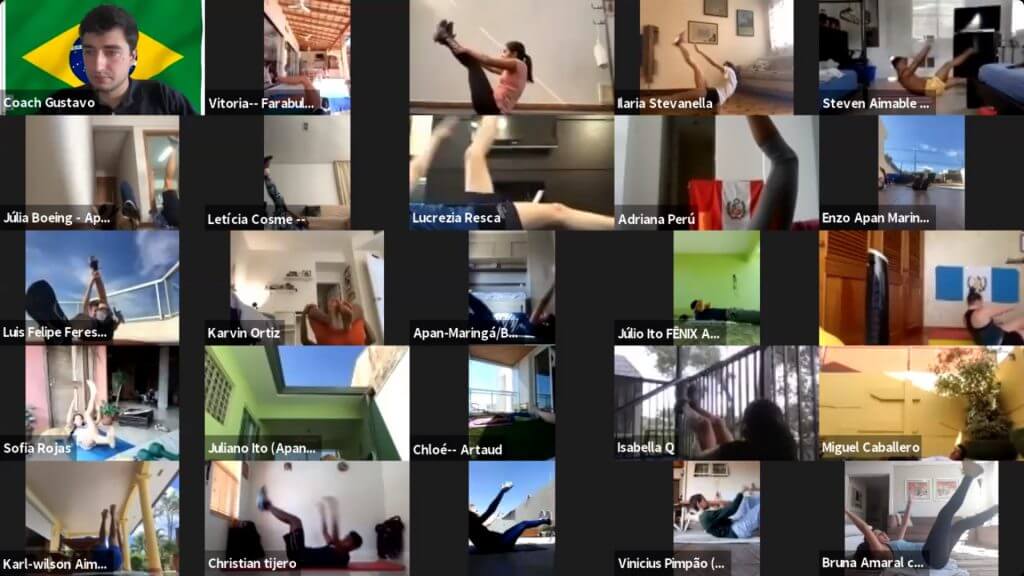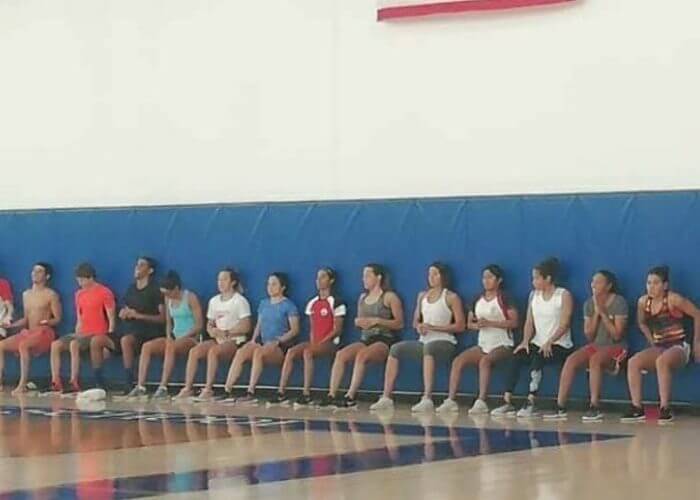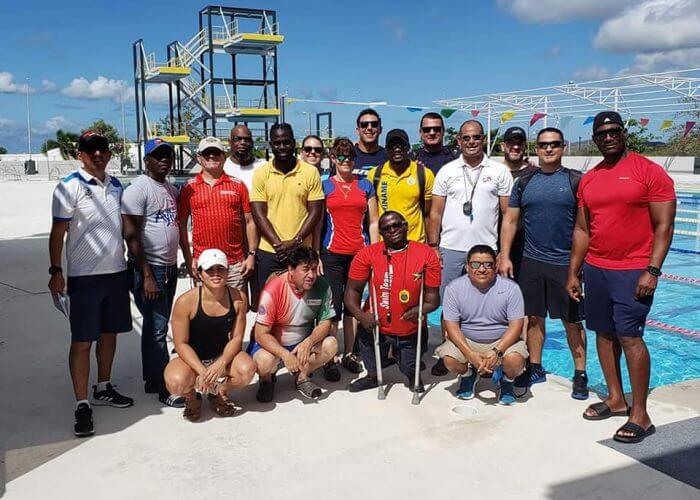Uniting the World Through Virtual Training: Azura Florida Aquatics

By Daniela Navarrete, Swimming World College Intern.
Nelson Mandela once said, “Sport has the power to change the world… It has the power to unite people in a way that little else does.” It has been hard for athletes to continue with their practice regimen due to the pandemic. Swimmers are not the exception. Teams have managed to deal with it in different ways to keep their athletes in shape and engaged. Through the Zoom application, Coach Gianluca Alberani and his coaches are giving not only his team, but anyone the opportunity to join virtual training sessions.
Azura Florida Aquatics
Popular due to its international representation, Azura is a club based in Fort Lauderdale and founded by Italian native coach Alberani. Azura has had swimmers and coaches from more than 70 countries since its establishment in August 2013. Age groupers, high school, and college swimmers have been part of its history, as well as elite and masters swimmers.
With all the uncertainty happening due to coronavirus, coach Alberani found a way to adapt to the situation. Since mid-March, Azura started a program called “Azura Virtual Training (AVT)” in which they let swimmers join their practices, regardless of location, age, or level. “This is what Azura is all about: diversity, integrity, and honesty; we like to include,” explains Alberani. He acknowledges that competitive sports are all about plans and goals. Yet, with the ongoing pandemic uncertainty is increasing. “We just found a way to keep the swimming community motivated and united.”
How does Virtual Training work?

Photo Courtesy: Azura Florida Aquatics
We typically see dryland as a workout we do in addition to swimming. Yet, during these tough times, very few have access to a pool. What makes Azura’s dryland sessions unique is that they work as a simulation of a typical swim practice. “I prefer to call it ‘on-land swimming,’ not dryland; we are simply transferring what we want to do in the water, by doing it in land,” explains Alberani.
Schedule
Azura holds practices twice a day, Monday through Saturday, except for Wednesdays and Saturdays when there is only a morning session. Throughout the week, each coach creates a practice per day, overseeing one specific training zone such as aerobic, anaerobic, strength, or sprint. “We are not just throwing a practice there because it looks good,” says French coach Yvain Desplat, who is in charge of the sprint zone practices. “(Swimming) forces you to exercise your entire body and because of the unnatural environment we evolve in when we are in the water, it is necessary to work around all possible aspects,” shares Desplat.

Photo Courtesy: Gianluca Alberani
Ages and Skills Training Together
The goal is to make athletes feel the same pain and stimulus in land as they do in water. However, the workout planning process becomes challenging when there are swimmers from all ages and competence levels altogether. “We plan the practices trying to accommodate all groups: from age groupers all the way to senior, college, and master swimmers,” mentions coach Gustavo Rasia, originally from Brazil. “When we make a specific exercise or set that will require a higher level of physical condition or muscle memory, we just adapt [by] giving variations of the same exercise.”
Offering morning and afternoon sessions allows athletes the opportunity to workout despite of time zone differences. The largest number of attendees has been 200 in one session. Nonetheless, around 1,500 swimmers and coaches representing almost 50 countries have joined.

Photo Courtesy: Gianluca Alberani
Swimmers’ Experience with Virtual Training
One of the athletes who has benefited from the opportunity to join Azura’s “on-land” swimming program is Matey Rezashki. Originally from Bulgaria, Rezashki is an NCAA Division II All-American for Delta State. He was scheduled to swim four individual events at the 2020 NCAA Division II Championships for the Statesmen, but the meet was cancelled halfway due to the coronavirus outbreak. Rezashki assures that virtual training has helped him not to lose his motivation until he gets the chance to swim with a team once again.
“The specific workouts are great because each person can focus on their strengths and weaknesses; I believe that I have become a lot better at drylands,” shares Rezashki. “Although we are all going through adversity, this helps us remain positive; spreading happiness is the best thing we can do.”
Another athlete is Celina Marquez. She is a 2019 Pan-American Games finalist whose goal is to achieve the Olympic qualifying A cut for Tokyo 2021. Originally from El Salvador, Marquez has shown massive improvement since she joined Azura in December 2018. However, she confesses it was hard for her to keep striving for her dream while in lockdown.
“Being away from home is already hard, so with the uncertainty going on it was even harder for me to find inspiration and continue working towards my objective,” expresses Marquez. She feels grateful for the virtual trainings Azura has provided because they have helped her redirect her way. “Seeing the rest of the swimmers through the camera makes me realize that I am not the only one in this situation; we are all experiencing the same issues and getting through them together is amazing.”
Moving Forward
While gradually pools will be opened and adapted to the new normal, we should be creative and find new ways to work on our weaknesses, stay positive and engaged. 2020 is not over yet; Azura’s story can teach us to make the best out of life’s unusual circumstances.
-All commentaries are the opinion of the author and do not necessarily reflect the views of Swimming World Magazine nor its staff.



